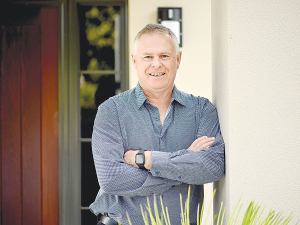Another Windfall for Fonterra Farmers, Unit Holders
Fonterra farmer shareholders and unit holders are in line for another payment in April.
 Peter McBride says he can understand why the Government is not at this stage in a position to support DIRA changes to facilitate the proposal.
Peter McBride says he can understand why the Government is not at this stage in a position to support DIRA changes to facilitate the proposal.
Fonterra chairman Peter McBride isn't too fussed with a Government threat to scuttle Fonterra's capital structure revamp.
Agriculture Minister Damien O'Connor has told the co-operative that the capital structure, currently before farmers for a vote, isn't consistent with the Government's policy objectives.
In a letter to McBride, O'Connor stated that at this stage it would be difficult for the Government to support regulatory changes needed to facilitate the proposals.
Fonterra farmers received the new capital structure proposal last week and will vote on it at a special general meeting in Invercargill on December 9. A copy of O'Connor's letter was also sent to all farmer shareholders.
McBride told Dairy News that he was "happy" to receive the letter as it shows the Government's willingness to work with the co-operative on a new capital structure.
McBride agreed that some might take the letter literally while others will think it is supportive of the co-operative.
"I was happy to receive the letter," he says.
"It's clear that we share the same objective: to see a sustainable, efficient, high performing and innovative Fonterra.
"Our objectives are aligned."
McBride noted that O'Connor was "really supportive of co-operatives".
"The important point in the letter is that the Government will work with us."
The new capital structure will have a flexible shareholding structure, allowing all farmers more flexibility around increasing or decreasing their shareholding during their farming career.
It requires 75% support from voting shareholders.
It will also require Parliament to approve changes to the Dairy Industry Restructuring Act (DIRA).
O'Connor claims the current proposals "envisage a legislative change to remove key mechanisms that risk weakening performance incentives on Fonterra".
"Without alternative measures, I am not yet assured that these proposals would deliver the best long-term outcomes for farmers or the dairy sector as a whole.
"I am particularly concerned that the current proposals would create a higher risk of diverging shareholder interests inside the co-operative, between farmers with minimum shareholdings for supply only and those with larger shareholdings held for investment purposes.
"My concern is that this could result in competing shareholder priorities relating to Fonterra's future direction and strategy."
McBride says he can understand why the Government is not at this stage in a position to support DIRA changes to facilitate the proposal.
"We understand the Government is looking for further assurance that our proposal supports contestability, drives performance and innovation, and protects alignment of shareholder interests," he says.
"I have spoken to the minister since receiving his letter and remain confident that we can provide the Government with the necessary assurances and work together to find a regulatory framework that supports the flexible shareholding structure.
“One of the considerations will be a strong mandate for change from the co-op’s farmers.”
The Meat Industry Association of New Zealand (MIA) today announced that Chief Executive Officer Sirma Karapeeva has resigned from the role.
The winners of the 2026 Hawke’s Bay/Wairarapa Dairy Industry Awards were announced at the annual awards dinner held at Copthorne Solway Park in Masterton on Thursday evening.
Environment Southland is welcoming this week’s decision by the Environmental Protection Authority (EPA) to approve the release of Blaptea elguetai, a leaf‑feeding beetle that will help control the highly invasive Chilean flame creeper.
This March, the potato industry is proudly celebrating International Women’s Day on 8 March alongside the International Year of the Woman Farmer, recognising the vital role women play across every part of the sector — from paddocks and packhouses to research, leadership, and innovation.
Fruit trader Seeka posted a record profit and returns to shareholders in 2025.
Recent weather events in the Bay of Plenty, Gisborne/Tairawhiti, and Canterbury have been declared a medium-scale adverse event.
OPINION: Staying with politics, with less than nine months to go before the general elections, there’s confusion in the Labour…
OPINION: Winston Peters' tirade against the free trade deal stitched with India may not be all political posturing by the…